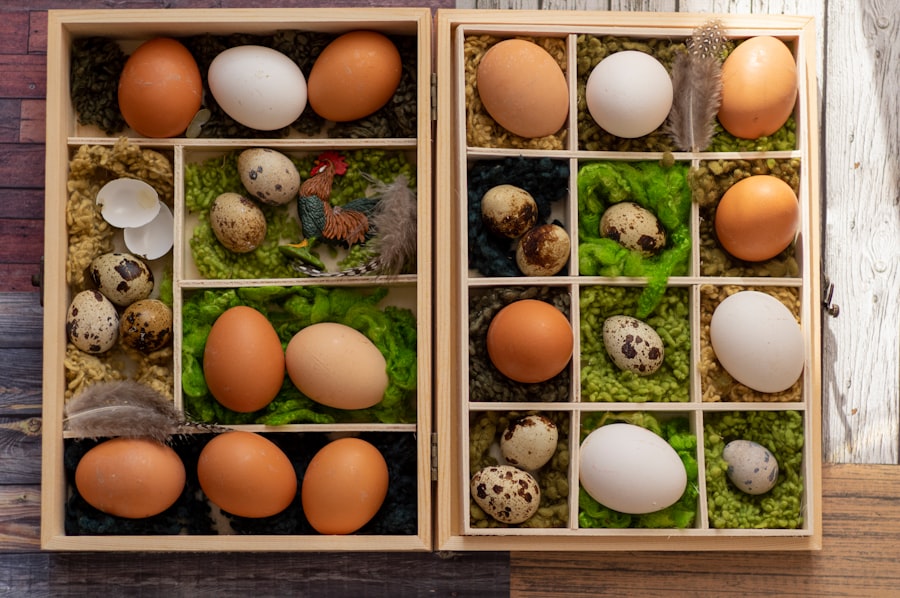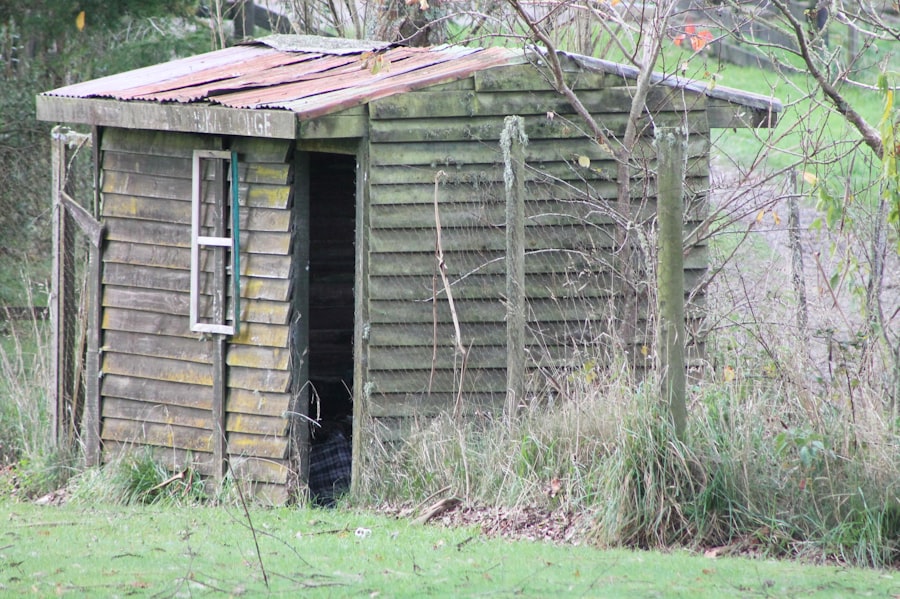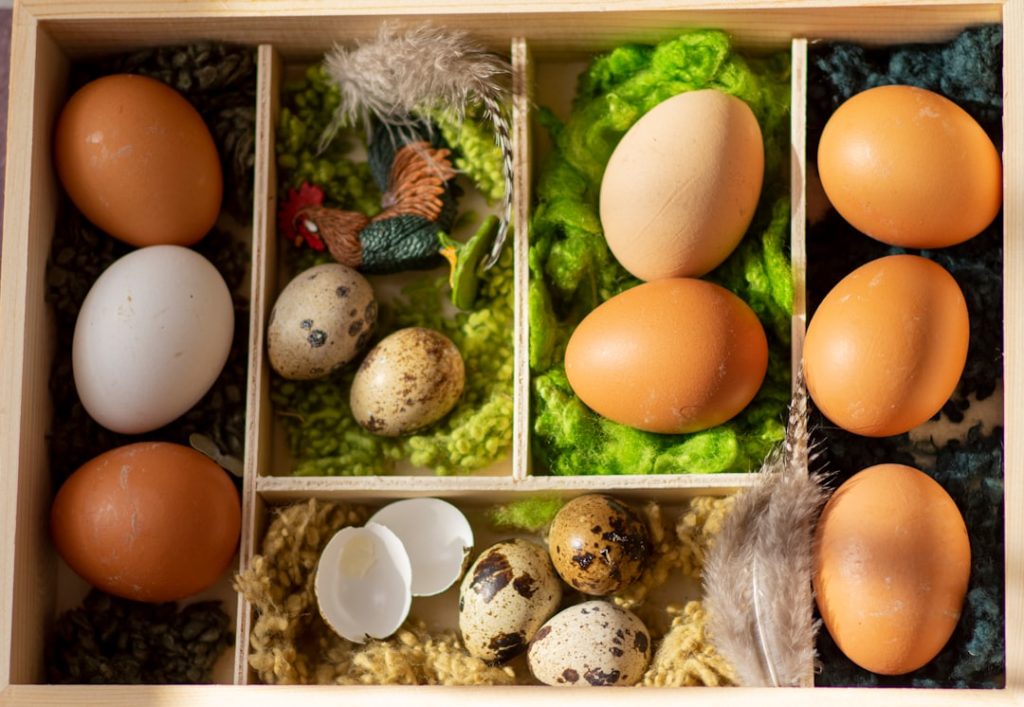When selecting chicken breeds for a backyard coop, several factors should be considered. Climate is a crucial element, as some breeds are better adapted to cold weather, while others thrive in warmer conditions. The purpose of raising chickens is also important, whether for egg production, meat, or as pets.
Breeds like Leghorns and Rhode Island Reds are known for high egg production, while Cornish Cross and Freedom Rangers are suitable for meat production. Orpingtons and Silkies are popular choices for friendly and docile pets. Space availability is another consideration, as some breeds are better suited for free-ranging, while others adapt well to confinement.
Temperament is essential, especially for families with children or other pets. Some breeds are known for being gentle and easy to handle, while others may be more skittish or aggressive. Noise level should be taken into account, particularly for those with close neighbors, as some breeds are more vocal than others.
The size of the breed is also important, with larger breeds like Jersey Giants or Brahmas requiring more space, while smaller bantam breeds are suitable for compact coops and yards. Aesthetics may be a factor for some chicken keepers, with a wide variety of breeds offering diverse colors and feather patterns. Ultimately, choosing the right chicken breed requires careful consideration of individual needs, preferences, and circumstances, as well as thorough research to ensure the best fit for the specific situation.
Table of Contents
- 1 Building a Coop
- 2 Providing Proper Nutrition
- 3 Ensuring Safety and Security
- 4 Maintaining Cleanliness
- 5 Handling Health and Medical Care
- 6 Creating a Suitable Environment for Chickens
- 7 FAQs
- 7.1 What are the benefits of keeping chickens in my yard?
- 7.2 What do I need to consider before keeping chickens in my yard?
- 7.3 What kind of shelter do chickens need in my yard?
- 7.4 What do chickens eat and how do I provide for them in my yard?
- 7.5 How do I keep my chickens healthy in my yard?
- 7.6 What are some common challenges of keeping chickens in my yard?
Key Takeaways
- Consider the climate, space, and purpose of raising chickens when choosing the right breed for your flock.
- When building a coop, prioritize ventilation, predator-proofing, and adequate space for the number of chickens you plan to keep.
- Provide proper nutrition by offering a balanced feed, access to fresh water, and occasional treats like fruits and vegetables.
- Ensure safety and security by regularly inspecting the coop for potential hazards and reinforcing fencing to keep predators out.
- Maintain cleanliness by regularly cleaning the coop, nesting boxes, and feeding areas to prevent disease and parasites.
Building a Coop
Space and Ventilation
First and foremost, you’ll want to ensure that the coop provides enough space for your chickens to move around comfortably. The general rule of thumb is to allow at least 2-3 square feet of space per chicken inside the coop, and 8-10 square feet per chicken in the outdoor run. This will help prevent overcrowding and reduce the risk of aggression and disease among the flock. Additionally, it’s important to provide adequate ventilation in the coop to prevent moisture buildup and ensure good air quality. This can be achieved through windows, vents, or a combination of both.
Insulation and Predator-Proofing
Proper insulation is also important, especially in colder climates, to help regulate temperature and keep the chickens comfortable. Another important consideration when building a coop is predator-proofing. Predators such as raccoons, foxes, and birds of prey pose a significant threat to chickens, so it’s crucial to design the coop with security in mind. This may include burying hardware cloth around the perimeter of the coop to prevent digging predators, using sturdy locks on doors and windows, and installing a secure roof to prevent aerial attacks.
Layout, Design, and Aesthetics
It’s also important to consider the layout and design of the coop to make cleaning and maintenance as easy as possible. This may include features such as removable roosts and nesting boxes, as well as easy access to food and water containers. Finally, consider the aesthetics of the coop and how it will fit into your backyard or property. A well-designed coop can be both functional and visually appealing, adding charm and character to your outdoor space.
Providing Proper Nutrition

Proper nutrition is essential for keeping your chickens healthy and productive. When it comes to feeding your flock, there are several key considerations to keep in mind. First and foremost, it’s important to provide a balanced diet that meets all of your chickens’ nutritional needs.
This typically includes a commercial feed that is specifically formulated for laying hens or broilers, depending on the purpose of your chickens. These feeds are designed to provide the right balance of protein, carbohydrates, vitamins, and minerals to support optimal growth, egg production, and overall health. In addition to commercial feed, it’s important to provide access to fresh water at all times.
Chickens can drink a surprising amount of water each day, especially during hot weather or when laying eggs, so it’s crucial to ensure that they have a clean and reliable water source. In addition to commercial feed and water, it’s important to supplement your chickens’ diet with fresh fruits and vegetables, as well as occasional treats such as mealworms or scratch grains. These treats can provide additional nutrients and variety to their diet, as well as serve as enrichment and entertainment for the flock.
It’s also important to consider the feeding schedule for your chickens. Most backyard flock owners choose to feed their chickens once or twice a day, typically in the morning and evening. However, some may choose to provide continuous access to feed throughout the day using a gravity feeder.
Ultimately, it’s important to monitor your chickens’ body condition and egg production to ensure that they are receiving adequate nutrition. Adjustments may need to be made based on factors such as age, season, and individual health needs.
Ensuring Safety and Security
Ensuring the safety and security of your chickens is paramount for their well-being and longevity. There are several key measures that can be taken to protect your flock from predators, disease, and other potential threats. One of the most important steps in ensuring safety is predator-proofing the coop and outdoor run.
This may include burying hardware cloth around the perimeter of the coop to prevent digging predators such as raccoons or foxes from gaining access. Additionally, it’s important to use sturdy locks on doors and windows to prevent entry by predators, as well as installing a secure roof to prevent aerial attacks by birds of prey. Regular inspections of the coop and run can help identify any potential weak spots or vulnerabilities that need to be addressed.
Another important aspect of ensuring safety is disease prevention and biosecurity. This includes measures such as quarantining new birds before introducing them to an existing flock, practicing good hygiene when handling chickens or their eggs, and regularly cleaning and disinfecting the coop and equipment. It’s also important to monitor your flock for signs of illness or injury and seek veterinary care when necessary.
Additionally, providing proper nutrition and access to clean water can help support a strong immune system in chickens, reducing their susceptibility to disease. Finally, it’s important to consider other potential threats such as extreme weather conditions or environmental hazards. Providing adequate shelter from heat, cold, wind, and rain is essential for keeping chickens safe and comfortable.
Maintaining Cleanliness
Maintaining cleanliness in your chicken coop is essential for preventing disease, reducing odors, and keeping your flock healthy and happy. There are several key practices that can help keep your coop clean and sanitary. First and foremost, it’s important to regularly remove soiled bedding from the coop and replace it with fresh bedding material such as straw or wood shavings.
This will help absorb moisture and odors, as well as provide a comfortable and clean environment for your chickens. Additionally, regularly cleaning out nesting boxes and roosts can help prevent the buildup of droppings and debris that can attract pests or harbor bacteria. In addition to regular bedding changes, it’s important to regularly clean food and water containers to prevent contamination by bacteria or mold.
Providing fresh water daily is essential for maintaining hydration and overall health in chickens. It’s also important to regularly clean and disinfect equipment such as feeders and waterers to prevent the spread of disease among the flock. Finally, regular maintenance of the outdoor run is important for preventing the buildup of waste material that can attract pests or create unsanitary conditions for your chickens.
This may include raking or turning over soil regularly to promote drainage and reduce odors.
Handling Health and Medical Care

Monitoring for Signs of Illness
Regular monitoring of your chickens is crucial to detect any signs of illness or injury. This includes changes in behavior, appetite, egg production, or physical appearance such as lethargy or abnormal droppings. Early detection of health issues can help prevent the spread of disease within the flock and improve the chances of successful treatment.
Preventative Care and Nutrition
In addition to regular monitoring, it’s essential to provide routine preventative care for your chickens, such as vaccinations or parasite control measures as recommended by a veterinarian. Regular veterinary check-ups can help identify any potential health concerns early on and provide guidance on best practices for maintaining optimal health in your flock. Furthermore, providing proper nutrition and access to clean water at all times is vital to support a strong immune system in chickens.
Seeking Veterinary Care
In the event that medical care is needed for a sick or injured chicken, it’s essential to seek veterinary care from a professional with experience in poultry medicine. This may include diagnostic testing such as bloodwork or fecal exams to identify underlying health issues, as well as treatment options such as medications or supportive care as needed.
Creating a Suitable Environment for Chickens
Creating a suitable environment for your chickens is essential for their overall well-being and quality of life. There are several key factors that contribute to a healthy and enriching environment for chickens. First and foremost, providing adequate space both inside the coop and in the outdoor run is essential for allowing chickens to move around comfortably and engage in natural behaviors such as scratching, dust bathing, and perching.
In addition to space considerations, providing enrichment activities such as hanging treats or toys in the coop or run can help keep chickens mentally stimulated and reduce boredom-related behaviors such as feather picking or aggression. It’s also important to provide adequate shelter from extreme weather conditions such as heat or cold by providing shade structures or windbreaks in the outdoor run. Finally, providing opportunities for natural behaviors such as foraging for insects or pecking at grass can help keep chickens active and engaged in their environment.
Ultimately, creating a suitable environment for chickens involves providing opportunities for natural behaviors while also ensuring their safety and comfort in all aspects of their living space.
If you’re looking for tips on how to keep chickens in your yard, you should check out the article on poultrywizard.com. This website offers a wealth of information on raising chickens, including advice on the best coop designs and interior ideas. Whether you’re a beginner or an experienced chicken keeper, you’ll find valuable insights on this site to help you create a comfortable and safe environment for your feathered friends.
FAQs
What are the benefits of keeping chickens in my yard?
Keeping chickens in your yard can provide you with a sustainable source of fresh eggs, natural pest control, and fertilizer for your garden. They also make great pets and can help reduce stress.
What do I need to consider before keeping chickens in my yard?
Before keeping chickens in your yard, you need to check local regulations and zoning laws, consider the space and shelter requirements for the chickens, and ensure you have the time and resources to care for them properly.
What kind of shelter do chickens need in my yard?
Chickens need a secure and predator-proof coop to roost and lay eggs, as well as a run or fenced area to forage and exercise. The coop should provide protection from the elements and have proper ventilation.
What do chickens eat and how do I provide for them in my yard?
Chickens eat a variety of foods including commercial feed, grains, fruits, vegetables, and insects. You can provide for them by setting up feeding stations and ensuring they have access to fresh water at all times.
How do I keep my chickens healthy in my yard?
To keep your chickens healthy, you should provide them with a balanced diet, clean water, regular access to sunlight and fresh air, and regular health check-ups. You should also keep their living area clean and free from pests.
What are some common challenges of keeping chickens in my yard?
Common challenges of keeping chickens in your yard include predator attacks, disease and parasites, noise and odor, and potential conflicts with neighbors. It’s important to be prepared for these challenges and take necessary precautions.
Meet Walter, the feathered-friend fanatic of Florida! Nestled in the sunshine state, Walter struts through life with his feathered companions, clucking his way to happiness. With a coop that’s fancier than a five-star hotel, he’s the Don Juan of the chicken world. When he’s not teaching his hens to do the cha-cha, you’ll find him in a heated debate with his prized rooster, Sir Clucks-a-Lot. Walter’s poultry passion is no yolk; he’s the sunny-side-up guy you never knew you needed in your flock of friends!







